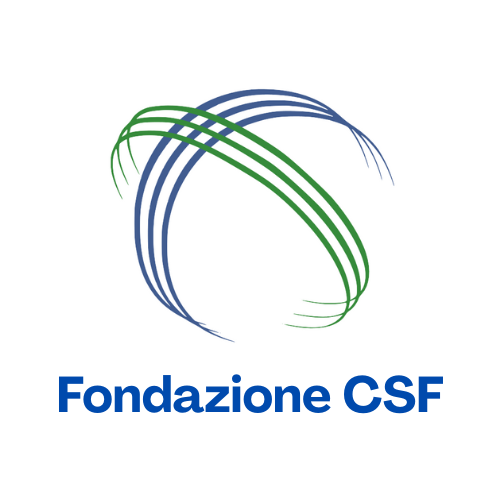Olimpia Fontana and Simone Vannuccini / 12 March 2024
Commentary no. 288
The world economy is restructuring. In this historical moment, emerging geopolitical fault lines, amplified by profound technological transformations and compounding crises of planetary scope – a challenging polycrisis and permacrisis – are the engine driving change. An implication of that is the substantial pressure policy makers experience, pushing for increasing state intervention in the economy to tackle rivalries and reduce vulnerabilities. In practice, this means that industrial policy becomes (once more) a viable course of action. The new positive attitude towards industrial policy is detectable everywhere: for instance, a few days ago in Italy, the General Confederation of Italian Industry (Confindustria) has presented the “Fabbrica Europa” (Factory Europe) dossier aimed at placing industry back at the center of the agenda in view of the next European elections, recognising that “we should let go of the ideological approach that has emerged in Europe in recent years and we should talk about tangible and ambitious solutions that can be put to good use.”
However, the race to develop or redevelop industry has a fundamental downside: it undermines international cooperation and feeds claims of sovereignty and inward-looking nationalistic approaches. Recent initiatives such as the Inflation Reduction Act (IRA) in the US illustrate the double-edged nature of the issue: on the hand, public investments (especially in critical and green technologies) are now widely accepted in virtue of their positive externalities; on the other, local content requirements are in plain clash with WTO principles. Similarly, trade policy becomes weaponised: export bans (read: towards China) applied to technologies – such as semiconductor devices – that are deemed key for economic competitiveness and military security in order to avoid “technology leakage” of strategic assets show how tense the international landscape has become. The very development of concepts such as technological sovereignty and (open) strategic autonomy proxy the transition to a factionalised globalisation.
We claim that, in Europe, the negative spillovers produced by competitive industrial policies can be overcome by building the tools and institutions of a federal industrial policy of the European Union (EU). The development of a such truly supranational industrial policy becomes a necessary (even though not necessarily sufficient) condition for the EU to retain its position at the global frontier of advanced industry, lead the ecological transformation of the economic system, and escape nationalistic ‘races to the bottom’. If that is the case, how can industrial policy for the green transition and strategic autonomy be institutionalised in the EU?
In 2022, the European Commission’s President Ursula von der Leyen introduced the idea of a European Sovereignty Fund (ESF) as a response to the increasing United States assertiveness on domestic industrial grounds. This promising proposal to support a ‘Made in Europe’ industry encountered resistance and faded. However, the ESF idea inspired a series of proposals revolving around the establishment of funds and the related changes required in terms of fiscal capacity of the EU. The key theme shared by many of these proposals is how to provide European public goods – a matter of funding and of delivery. We should build on these foundations. Successful innovation on this front would be a welcome outcome: the crystallisation of European industrial policy in permanent institutional vehicles will facilitate the provision of European public goods related to industrial production, technological advances, and security.
We are aware that the key headwinds to European industrial policy are political – as intervention in the domain of industry is a matter of State intervention, and the EU is not a federal State yet. However, that current external pressures create not only risks, but also an unbalanced situation from which new power arrangement can emerge. We have witnessed a glimpse of that with the institutional innovations launched in reactions to the Covid-19 pandemic under the Next Generation EU (NGEU) package. While the NGEU shows possible directions to breach the wall of national resistance, its departure from the past in terms of tools and financing is limited by the temporary nature of the initiative. Hence, the true political challenge is to make institutional innovations permanent – or, at least, to begin moving in that direction.
Our proposal is to establish a broad institutional platform, that is, a framework fund for a European industrial policy, building on the NGEU model and the ESF idea. The fund can be established as a non-permanent vehicle, but with a longer time frame, and financed through the proceeds of EU bonds. The rationale for its establishment could be based on the emergency provisions of Art. 122 TFEU, possibly resorting to consensus on the emergency unfolding in the context of the permacrisis, and on the principle of fairness in the distribution of support across Europe. The NGEU model could provide the legal framework to introduce a still temporary, but this time long-term framework focusing on strategic industrial sectors – particularly green and critical technologies. We suggest an architecture based on a two-tier structure. A first tier is represented by the existing Important Projects of Common European Interest (IPCEI) instrument, currently providing “European public goods by aggregation” (with national delivery and European financing). In our framework, we advocate for a Europeanisation of IPCEIs, which should evolve to become European pure public goods (with both European delivery and financing). A second level will be based on centrally managed programmes, whether already existing or new tools, designed to overcome the shortcomings of InvestEU and the Innovation Fund, both in terms of directionality and funding. The recent Strategic Technologies for Europe Platform (STEP) is a starting point in this direction, as it focuses on strengthening existing programmes. However, it lacks financial capacity and replaces monetary support with signaling tools (e.g. the European Sovereign Seal). A proper federal fund – autonomous from the Commission – will administer European industrial policies.
Our two-tier structure rationalises a model to provide European public goods effectively, and thus represents an effective path to increase economic, green and technological prosperity in the EU, as well as to achieve a style of strategic autonomy that will not harm global dynamics. All in all, our proposal stresses the fundamental, unsolved issue of any European policy: an architecture, for how much well-designed, won’t work automatically; it needs resources. This is why we stress that, above all, in the EU there will be no strategic autonomy without real fiscal autonomy.
*Olimpia Fontana is Mario Albertini Fellow at the Centro Studi sul Federalismo and Research Fellow at Università Cattolica del Sacro Cuore; Simone Vannuccini is Professor of Economics of Artificial Intelligence and Innovation at Université Côte d'Azur, Nice (France)
Download PDF - Commentary no. 288

 It
It  En
En 



